From Oscars to dignitary visits, the red carpet rolled out going back at least a century symbolizes glamour, power and royalty. In Saudi Arabia, there’s another colour that is associated with royalty – “purple”. The purple represents the colour of the kingdom’s deserts and plateaus in the spring, where the violet-lavender flowers blossom in the unique natural landscape of the Kingdom.
When President Xi Jinping arrived in Saudi Arabia on Wednesday (Dec 7), his extravagant welcome was not only confined to the royal purple-carpet for the 3-day official visit. Four Saudi royal air force fighter jets were sent to escort the Chinese president’s plane as it entered Saudi airspace, while six aerobatic aircrafts unleashed red and yellow smoke – colours of the Chinese national flag.
Arriving in the capital Riyadh on an Air China Boeing 747, President Xi was received by Riyadh Governor Prince Faisal bin Bandar and Foreign Minister Prince Faisal bin Farhan Al Saud, and greeted with a 21-cannon salute. In comparison, U.S. President Joe Biden’s visit to the kingdom in July saw his arrival in the port city of Jeddah – without the cannons salute, let alone aerobatic jets in the sky to welcome the POTUS.
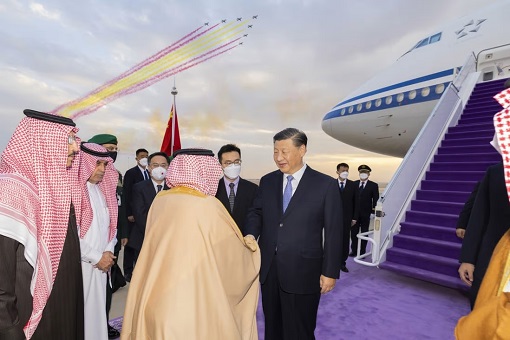
Determined to send a message to Washington that Riyadh has other powerful friends, Crown Prince Mohammed bin Salman welcomed President Xi with a grandeur reception at Al-Yamamah Palace. Also known as MBS, the Saudi crown prince smiled warmly as he took photographs with the Chinese leader, a contrast to the hostile atmosphere during Biden’s visit.
Saudi state TV replayed clips of past meetings between Chinese and Saudi officials, showing the two countries’ warm relationship spanning more than eight decades. Saudi newspaper Al Riyadh reported that President Xi said his visit to the kingdom “will usher in a new era in China’s relations with the Arab world, the Arab states of the Gulf and with Saudi Arabia.”
On the same day, Saudi and Chinese companies signed 34 investment deals worth a staggering US$30 billion, including in the sectors of green energy, information technology, cloud services, transportation, logistics, medical industries, housing and construction. Last year, bilateral trade between Saudi and China hit US$87.3 billion – up 30% from 2020.
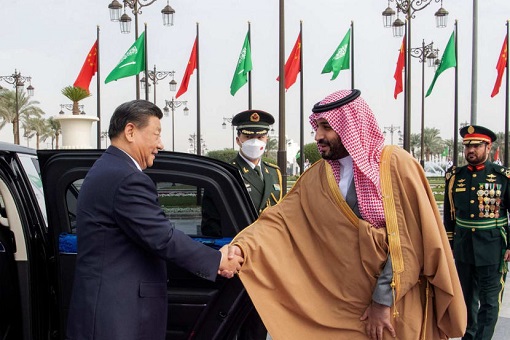
Oil remains the primary focus of trade. China’s crude imports from Saudi Arabia stood at US$43.9 billion in 2021 – 77% of its total goods imports from the kingdom. That’s more than a quarter (25%) of Saudi’s total crude exports. Following Ukraine War, Russia became China’s top oil supplier between May and July, until Saudi regained the top spot in August.
As the world’s biggest importer of oil, China needs a consistent and reliable supply of the commodity. Although Russia is a source of cheaper supply, it cannot guarantee an uninterruptable supply. Saudi energy minister Prince Abdulaziz bin Salman said that the kingdom would remain China’s “credible and reliable partner in this field.”
Likewise, Saudi needs a loyal and reliable buyer, hence was concerned about losing market share in China to heavily discounted Russian and Iranian crude oil. The kingdom is also tapping China’s construction expertise – as well as investments – for Crown Prince MBS’s ambitious US$500 billion futuristic city of NEOM on the Red Sea.
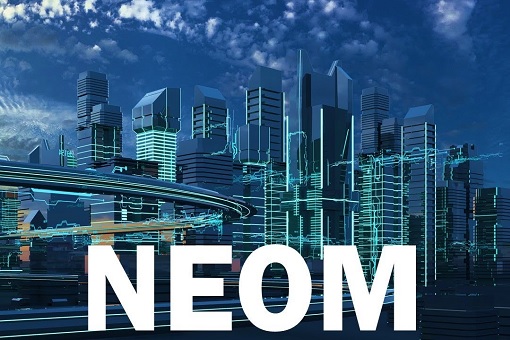
But Xi Jinping’s state visit was not merely meeting MBS and his 86-year-old father, King Salman. Gulf Arab leaders, including Qatar’s Emir Sheikh Tamim bin Hamad Al Thani, Bahrain’s King Hamad bin Isa Al Khalifa, and leaders from Kuwait, Oman, Egypt, Tunisia, Palestine, Sudan, Iraq, Morocco, Algeria, Lebanon and the United Arab Emirates (UAE) were also involved in a joint meeting with President Xi.
As expected, the U.S. was upset with the extraordinary treatment accorded to the Chinese president. The White House has issued a warning that China’s attempt to spread influence worldwide is “not conducive” to international order. President Joe Biden previously identifies China as a threat – a global competition between democracies and autocracies.
White House National Security Council spokesman John Kirby said – “We are mindful of the influence that China is trying to grow around the world. The Middle East is certainly one of those regions where they want to deepen their level of influence. We believe that many of the things they’re trying to pursue and the manner in which they’re trying to pursue it are not conducive to preserving the international rules-based order.”
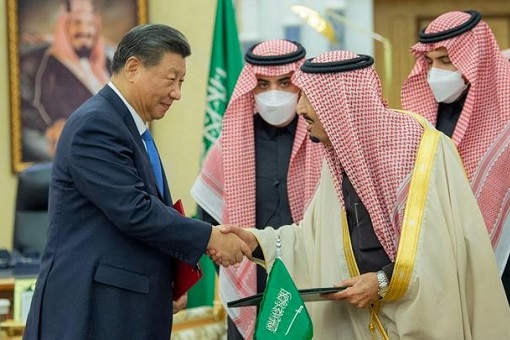
On Oct 3, OPEC and non-OPEC allies, an alliance known as OPEC+, decided to ignore U.S. Joe Biden’s begging for an increase in oil production, even after the U.S. president fist-bump with the Saudi Crown Prince. At their first face-to-face gathering in Vienna since 2020, OPEC+ announced a dramatic reduction in production quota – slashing output by 2 million barrels per day effective November.
Accusing Saudi of pro-Russia, Joe Biden angrily warned that there will be “consequences“ for U.S. relations with Saudi Arabia. But the Saudi Crown Prince retaliated by exposing how Biden asked Saudi to delay its decision on oil output by a month – until after the U.S. midterm elections. It was a move to embarrass Sleepy Joe, who had flown to Saudi to suck up to the crown prince.
On Oct 16, U.S. National Security Advisor Jake Sullivan said that President Biden had “no plans” to meet with Saudi Crown Prince, popularly known as MBS, on the sidelines of the G20 summit in Nov in Indonesia. The next day (Oct 17), Saudi retaliated, announcing that “no invitations” will be sent to US government officials to attend the “Davos in the Desert” investment conference to be held at the end of Oct.
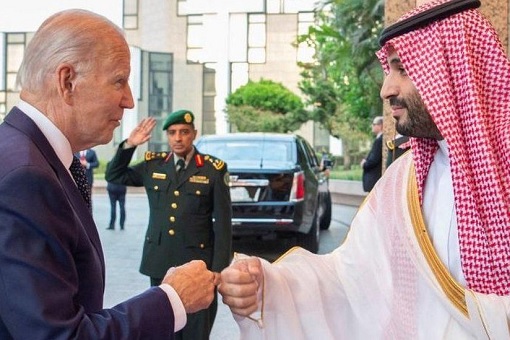
While Washington claims it treasure Saudi as a strategic U.S. partner for some 80 years, in reality, the relationship between both nations has plunged to a new low level under Biden administration. The POTUS released the Central Intelligence Agency’s conclusion that the crown prince had ordered the 2018 murder of journalist Jamal Khashoggi. He also promised to make a pariah out of of Saudi Arabia over the gruesome murder.
In his bid for the White House, Biden was forced to criticise Beijing on Xinjiang, Hong Kong, South China Sea, and trade issues. He even called Xi Jinping a “thug” and labelled the Xinjiang issue as “genocide”. Hilariously, Saudi Arabia, the Custodian of the Two Holy Mosques, has publicly defended China’s policies in regards to Xinjiang and even supported China’s policy on Taiwan.
In fact, Saudi is introducing Mandarin into the Saudi school curriculum – recognition of the importance of the Chinese language. In yet another move seen as a slap in the face of Biden and Washington, King Salman signed a “comprehensive strategic partnership agreement” with President Xi that includes Huawei Technologies’ cloud computing and data centres, despite the U.S. tech war on the Chinese tech giant.
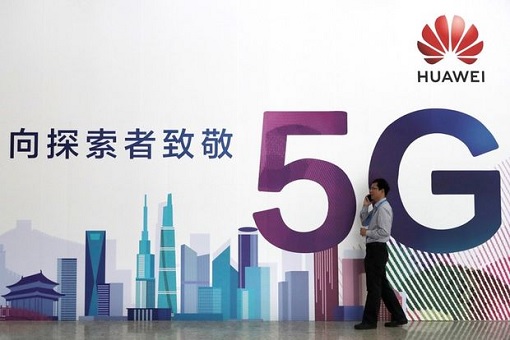
In order to contain China’s rise as a tech power, Trump banned Huawei in the U.S. in 2019 because the president was not happy that Huawei’s 5G technology was ahead of the U.S. Under the pretext of national security, the Chinese tech giant was added to a trade blacklist in May 2019 – effectively requiring American companies to get approval from the government before conducting business with the Chinese firms.
However, Huawei has taken part in building 5G networks in most Gulf states despite the U.S. warning over dubious security threats posed by Huawei equipments. The Arab world understood it was Trump’s attempt to block Huawei from rolling out 5G around the world. Washington claims the 5G network technology offered by Huawei could be used by China for espionage, an allegation that the U.S. can’t prove until today.
In 2019, despite American pressure to avoid Huawei’s products, the UAE announced that it would employ equipment from the Chinese technology giant to establish a new high-speed wireless network. Washington, extremely concerned over Huawei 5G dominance, has even used its F-35 as a bargaining chip to threaten the Arab state, only to see the UAE chose technology over fighter jets.
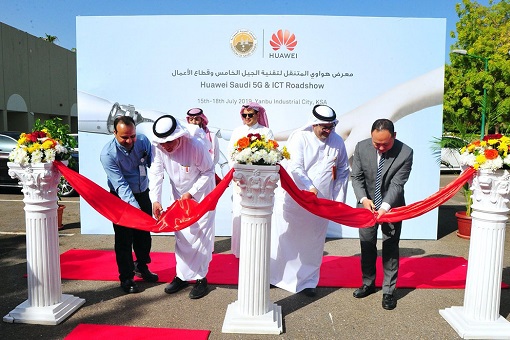
The tech war was purely a global rivalry between the U.S. and China in 5G technology, which saw the Chinese leading the race. China was being suppressed to allow America enough time to play catch up. The various bans, blacklists, sanctions and whatnot were deliberately designed to cripple – and hopefully to stop – the Chinese from becoming the leader in tech power.
The strategic deal was signed on Thursday (Dec 8) after President Xi was escorted to the Yamamah Palace by the Saudi Royal Guard, who were on horseback and carried Chinese and Saudi flags. Crown Prince Mohammed – de facto ruler of the world’s biggest oil exporter- greeted the Chinese leader at the palace, which is the king’s official residence and seat of the royal court.
For now, the ties between Saudi and China appear to be purely commercial. It’s worth noting that many global relations begin with commerce before venturing into defence or military. China has sold various types of drones – even helping the kingdom builds its own ballistic missiles as well as producing nuclear fuel. Despite its anger, the U.S. cannot afford to look desperate.
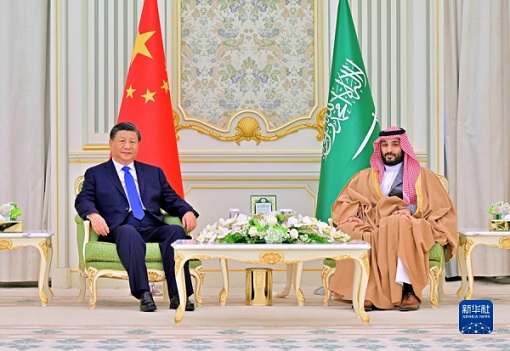
Other Articles That May Interest You …
- Saudi Set To Humiliate Joe Biden Further With A Grandeur Welcome For Xi Jinping Next Week
- Oil-Rich Saudi Doubles Import Of Russian Oil – How Crown Prince & Putin Play The U.S. And Europe Like A Fool
- Unacceptably High Inflation – Panicked U.S. Scrambles To Cap Russian Oil Price, But Here’s Why The Scheme Is Pure Fantasy
- Recession Inevitable – Federal Reserve May Slap 0.75% Rate Hike To Trigger A Recession To Try Fix Its Own Screw-Up
- Economic & Financial Meltdown Is Here – All Signs Lead To Recession, Stagflation, Jobless And A Repeat Of Dot-Com Bust
- Russia Cuts Off Gas To Poland & Bulgaria – European Gas Jumps 24% As Putin Starts Punishing “Unfriendly Countries”
- Ukraine Invasion – Putin’s Real Intention That Conventional Wisdom Have Failed To Comprehend
- U.S. Sanctions Fail – How Russian Currency Emerges Stronger Than Pre-War With A New Gold Standard
- Pay Gas In Ruble Or Else – Europe In Serious Trouble As Putin Retaliates Against Western Sanctions
- From Wheat To Oil & Gas – How Russia Invasion Of Ukraine Affects Europe’s Food Supply, And Even Your Loaf Of Bread
- Biden Blinked – Huawei CFO Sabrina Meng Returns Home, US-DOJ Dropped Extradition Request

|
|
December 9th, 2022 by financetwitter
|


|

|

|

|

|

|







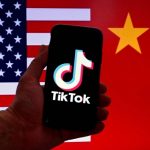




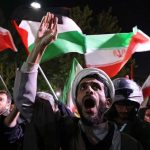


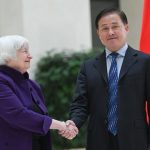












Strange, I’ve yet to see our sorry politicians greeted this way by the Saudis.
Even our grand mullah Hardy has not ever received this kind of treatment from Saudi Arabia.
Must be plenty to do with the fact Xi is Chinese.
And China is errr China.